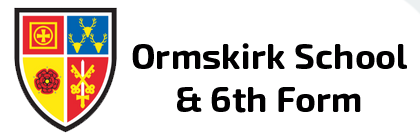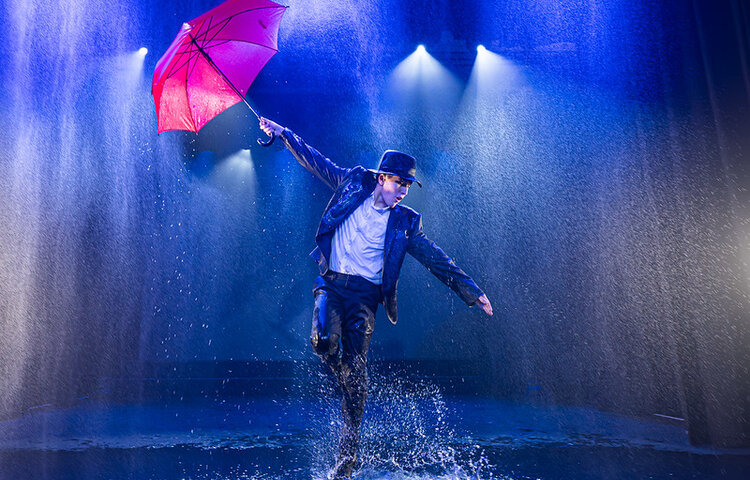Religious Education
Religious Education Subject Staff
|
Miss Drake |
- |
Head of RE |
|
Mr Clarke |
- |
Teacher of RE |
|
Miss Davies |
- |
Teacher of RE |
|
Mr Hurst |
- |
Teacher of RE |
|
Mr Stewart |
- |
Teacher of RE |
Statement of Intent
The role of RE at Ormskirk school is to equip students with the knowledge and skills needed to flourish within the wider world. The aim of the curriculum is to allow our students to explore the big six world religions, while also investigating a variety of other world views such as Humanism. Each unit of study throughout KS3 and KS4 are in line with the guidance set by the Lancashire agreed syllabus for Religious Education, therefore giving our students the opportunity to explore the different religious traditions they may experience as they live in the local area. Each unit of work will involve a disciplinary focus such as;
- Theology - The study of how religion influences individual belief
- Philosophy - How religion can help us find truth and the answer to complex questions
- Social science - How we can experience religion in Great Britain
In year 7 students will begin their inquiry into religious education by studying Abrahamic religions in chronological order, in order understand how religion developed over time and has shaped the world we live in today. During the Summer term of year 7 and the Autumn term of year 8, students will explore the Dharmic faiths, which originated in India and will start to explore a variety of world views. The study of both Abrahamic and Dharmic faiths will allow our students to search for personal meaning within the world and to try and build their own set of values and beliefs. In the Spring and Summer term of Y8 students will use their knowledge of the Big six world religions to grapple with the complex questions such as ‘If God is real, why do we suffer?’. The thematic units of work will allow students to evaluate the theology behind different religions and piece together their own ideas about the world around us. Analysis of the arguments for and against the death penalty in our unit ‘How does religion influence attitudes towards criminals?’ will enable pupils to identify their own beliefs, and critically assess them against key religious belief such as ahimsa within Hinduism.
Once into year 9, pupils will continue to explore a variety of challenging and thought-provoking questions such as ‘Should everyone be an absolute pacifist?’. Through this unit, our students will develop a deeper understanding of complex issues such as Anti-Semitism and the Conflict in Northern Ireland. Our lessons throughout KS3 will provide our students with the ability to critically assess a range of literacy texts such as the Bible, Qur’an and Philosophical work of great thinkers such as Phillipa Foot. This will allow our students to develop their vocabulary, discover the etymology of a variety of words such as ‘terrorism’ and to foster a confidence in reading among all our learners. By covering a variety of issues such as abortion, causes of crime and Islamophobia we are able to support the social, spiritual, moral and cultural development of young people. This also links to the teaching of British values as through the teaching of each world religion we are able to instil respect and tolerance among our young people.
In year 10 and 11 students focus on Christianity and Islam. This allows students to study Islam and Christianity in more detail and to evaluate thought provoking statements such as ‘Hell is incompatible with Christian teachings’. Our curriculum is shaped as a spiral, therefore throughout KS4 we revisit content briefly studied at KS3 and analyse its meaning and merit in more depth. Once more familiar with the beliefs of Christians and Muslims, students will explore a variety of themes such as Good and evil, Relationships, Human rights and Life and death. This will allow students to develop their own ideas and beliefs about important contemporary issues such as ‘Is human life always sacred?’.
In KS5 students develop their understanding and appreciation of religious Christian theology, as well as the disciplines of ethics and the philosophy of religion. Students cover a more complex investigation into the development of religious thought, the philosophy of religion and the philosophy of ethics. Students will have the opportunity to critique world renowned philosophers such as Plato and Aristotle. They will also explore issues such as the impact of religious visions on how Christians view the world. While also developing further their knowledge from KS4 in order to try and find a solution to the existence of moral evil. At KS5 students have the opportunity to grapple with important topics such as Business ethics, which will equip them to become informed and educated members of the wider world. Through the study of ethical issues such as ‘What makes an action good?’, students will deepen their own personal views in preparation for the wider world of employment or university. The curriculum is designed to enable students to gain the knowledge required to develop mastery in assessing the validity of philosophical voices, analysing the coherency of Christian thought and debating the strengths and weaknesses of different ethical theories. Each lesson allows students to identify connections between different arguments and to evaluate their validity using a variety of sources such as the work of Jeremy Bentham and Emmanuel Kant.
*Parents have the right to withdraw their children from some parts of RE teaching. Should you wish to discuss this option, please contact the Headteacher via enquiries@ormskirk.lancs.sch.uk

